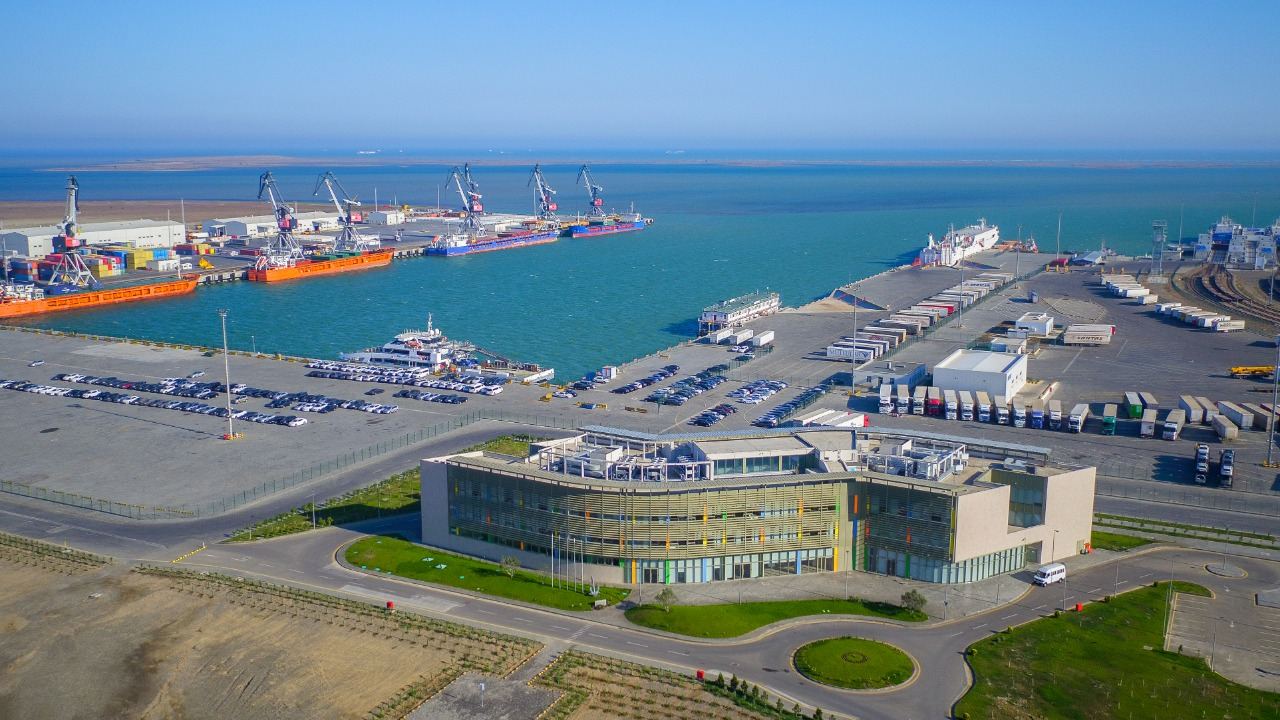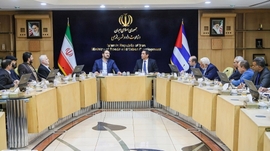Kazakhstan has delivered an updated roadmap to Azerbaijan for the development of the Trans-Caspian International Transport Route, known as the Middle Corridor, which aims to facilitate trade and stimulate economic growth within the region.
On Monday, Kazakh Minister of Industry and Infrastructure Development Marat Karabayev, who led a large Kazakh delegation, met Rashad Nabiyev, Azerbaijan’s Digital Development and Transport Minister, in Baku to discuss the draft roadmap.
“It takes into account the recommendations for the integrated development of transportation, reflected in the EBRD analytical report on the transport connectivity of Europe and Central Asia,” Report.az quoted the Kazakh ministry.
The paper is a result of June meeting between the leaders of Kazakhstan and Azerbaijan who directed their teams to create a document that outlines their joint plans.
During the delegation's visit, they toured various key locations including the Baku International Sea Trade Port, port stations, Baku Shipbuilding Plant, Absheron Logistics Center, Baku International Trade Sea Port "Hovsan," Bash-Alat station, and the capital's railway station. The Kazakh minister had the opportunity to inspect passenger cars manufactured by the Swiss company Stadler.
The head of the Kazakh delegation underscored the joint accomplishments of both nations in advancing the Middle Corridor, as Baku and Astana agreed to take full advantage of the growing interest in the route and involve third countries in its infrastructure development. The agenda includes the improvement of logistical services, the creation of unified transport operators, the modernization of technical and tariff conditions, the elimination of administrative barriers and the emergence of a closed logistical cycle.
The Baku International Sea Trade Port (Azerbaijan), Aktau/Kuryk ports (Kazakhstan) and Turkmenbashi Port (Turkmenistan) are the main maritime points of the Middle Corridor, which promises even bigger benefits to the landlocked countries in the region.
Compared to the Northern Corridor, the Middle Corridor provides a more cost-effective and faster trade route, reducing travel distance by 2,000 kilometers. Additionally, it benefits from more favorable climate conditions and reduces travel time by 15 days compared to sea routes.
The Middle Corridor opens up immense opportunities for cargo traffic in Asia, enabling goods to reach the Middle East, North Africa, and the Mediterranean region by integrating port connections in Türkiye.
The strategic location of the Middle Corridor is expected to create significant economic opportunities, allowing South Caucasian and Central Asian countries to benefit from the $600 billion China-Europe trade annually.
The establishment of logistics centers and free trade zones at the ports of Azerbaijan, Kazakhstan, and Turkmenistan will facilitate the development and deepening of Trans-Caspian cooperation, providing a boost to regional economies. By effectively leveraging the benefits of the Middle Corridor, the countries in the region can reap the rewards of increased trade and economic growth.







 Turkmen President Serdar Berdimuhamedow and British Secretary of State for Foreign Affairs, Commonwealth Affairs, and Development David Cameron dis...
Turkmen President Serdar Berdimuhamedow and British Secretary of State for Foreign Affairs, Commonwealth Affairs, and Development David Cameron dis...
 A draft resolution aimed at preventing the development and deployment of weapons of mass destruction (WMDs) in outer space, co-sponsored by Japan a...
A draft resolution aimed at preventing the development and deployment of weapons of mass destruction (WMDs) in outer space, co-sponsored by Japan a...
 Russia and Ukraine have engaged in direct negotiations facilitated by Qatar to address the exchange of children affected by the ongoing conflict.
Russia and Ukraine have engaged in direct negotiations facilitated by Qatar to address the exchange of children affected by the ongoing conflict.



